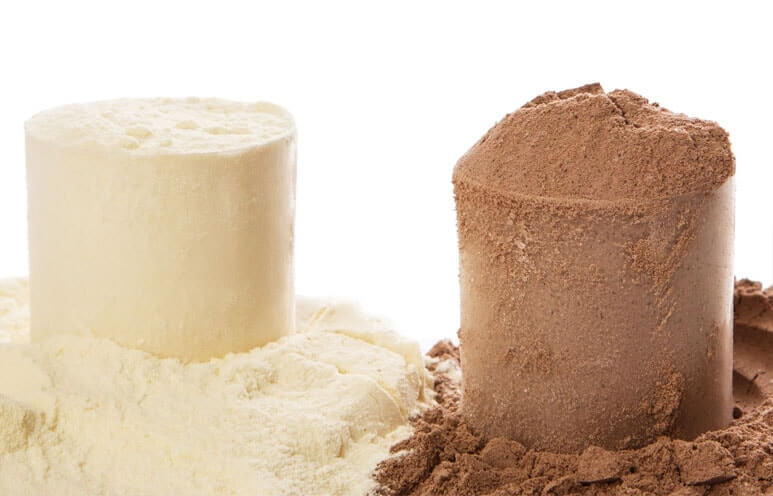
When it comes to protein supplements, two of the most popular options are whey protein concentrate (WPC) and whey protein isolate (WPI). Whether you’re an athlete looking to boost your performance or simply someone trying to add more protein to your diet, understanding the differences between these two can help you make an informed choice. Let’s dive into the nitty-gritty of these proteins, from their sources to their benefits, digestion, and optimal timing for consumption.
What Is Whey Protein?
Before we get into the specifics, let’s clarify what whey protein actually is. Whey protein is derived from milk and is a byproduct of cheese production. When milk is curdled and strained, whey is the liquid that remains. This liquid is rich in protein and contains all nine essential amino acids, making it a complete protein source.
Whey Protein Concentrate vs. Whey Protein Isolate
The Process of Creation
Whey Protein Concentrate: The production of WPC involves filtering the liquid whey to remove some of the fats and carbohydrates. The final product typically contains about 70-80% protein, along with some lactose, fats, and minerals. This makes it less processed than whey protein isolate.
Whey Protein Isolate: In contrast, WPI undergoes further processing to remove most of the fats and lactose, resulting in a protein content of 90% or more. The isolation process often involves techniques like cross-flow microfiltration or ion exchange, which refine the protein even more.
Source of the Protein
Both WPC and WPI originate from the same source: cow's milk. The difference lies in how they're processed. If you’re lactose intolerant or sensitive to fat, WPI might be the better option for you since it has significantly less lactose and fat than WPC.
Digestion in the System
Whey Protein Concentrate
WPC digests relatively quickly, making it an excellent option for post-workout recovery. The presence of lactose and fats means it can take a little longer to break down in comparison to WPI. This slower digestion can provide a sustained release of amino acids, which is beneficial for muscle repair over a longer period.
Whey Protein Isolate
WPI is absorbed even more rapidly by the body due to its higher protein content and lower levels of fats and lactose. This makes it particularly useful for those who want a quick protein source immediately after workouts. If you’re looking to get those amino acids into your system fast, WPI is the way to go.
Benefits of Whey Protein Concentrate
- Taste: Many people find WPC to have a creamier texture and better taste compared to WPI, making it a more enjoyable addition to shakes or smoothies.
- Nutritional Content: WPC retains some beneficial nutrients like immunoglobulins and lactoferrin that are lost during the isolation process.
- Cost-Effective: Generally, WPC is less expensive than WPI, making it a budget-friendly choice for those looking to increase their protein intake.
Benefits of Whey Protein Isolate
- Higher Protein Content: WPI is packed with protein, making it ideal for muscle-building and recovery.
- Lower Lactose: For those who are lactose intolerant, WPI offers a great alternative since it has very little lactose, minimizing digestive discomfort.
- Rapid Absorption: If you're looking for quick recovery after intense workouts, WPI’s fast absorption rate makes it perfect for immediate post-exercise nutrition.
Timing: When to Use Each Type
-
Whey Protein Concentrate: WPC is great for any time of day. If you're looking for a snack or a meal replacement, it can provide a steady release of protein. It's especially beneficial when you want a slower, sustained source of energy, such as before bed or as a midday snack.
-
Whey Protein Isolate: WPI shines in post-workout scenarios. Since it digests quickly, taking WPI immediately after your workout can help jumpstart muscle recovery and growth. If you’re in a pinch and need a quick protein boost, it’s your best bet.
Breakdown Periods
-
Whey Protein Concentrate: The digestion time for WPC can range from 1 to 3 hours, depending on individual digestive health and the presence of other nutrients consumed alongside it.
-
Whey Protein Isolate: With its more refined nature, WPI generally digests faster, typically within 30 minutes to 1 hour, making it ideal for immediate use after exercise.
In the debate between whey protein concentrate and whey protein isolate, both have their unique advantages and uses. If you’re looking for a budget-friendly protein that tastes great and offers a range of nutrients, WPC might be your best choice. On the other hand, if you prioritize rapid absorption and are focused on muscle recovery, WPI could be the better option.
Ultimately, your choice should align with your personal goals, dietary preferences, and how your body responds to each type. By understanding the nuances of these two forms of whey protein, you can make an informed decision that fits your lifestyle. Happy supplementing!

